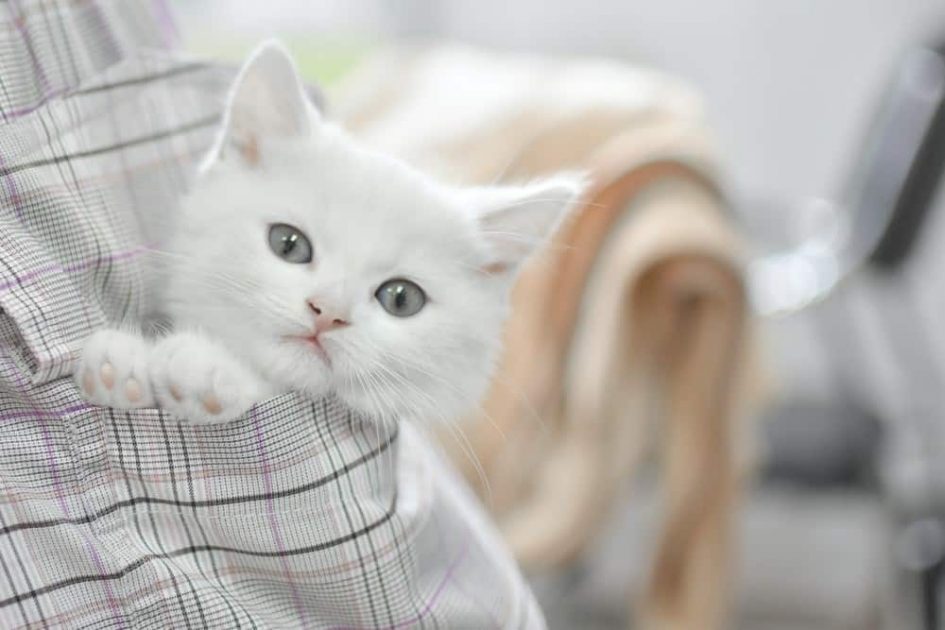

What Type of Litter Box Do Cats Prefer? (Open or Closed)
"A litter box holds as much importance to your cat as does food. But the one question that still stands is: what type of litter box do cats prefer - open or closed? "
If you notice that your furry kitty isn’t using the litter box that you got her with so much love, the chances are that she probably doesn’t like it!
As it turns out, a litter box holds as much importance to your cat as its food does. While some cats are quite open to whichever litter box you get them, others aren’t so flexible and have very obvious preferences.
Some cats like doing their business in a closed litter box, while others prefer the open kind.
In many cases, it often creates a clash between what a cat owner wants and what their pet cat likes, but at the end of the day, you must strike a balance between both.
On top of that, a newly designed cat litter box is introduced to the market every other day, with an aim to make pet owners’ lives easier.
But the one question that still stands is: what type of litter box do cats prefer – open or closed?
1. Open Litter Box vs Closed Litter Box
A study was once conducted in 2012 by researchers at Ross University School of Veterinary Medicine to study cats’ litter box preferences.
A total of 28 cats were chosen for this study, out of which 44% were male cats and 56% were female cats. Their ages ranged from 3 months to 15 years, and the average age was 1.3 years.
At the time of induction, 78% of the cats in the study were using open litter boxes, and 59% had experienced using a covered box at some point in life. The study cats had no history of having any kind of issue with their litter boxes or other elimination-related problems in the previous year.
The ultimate goal of this study was to determine whether cats generally prefer covered/closed litter boxes or uncovered/open litter boxes.
Each cat was given access to both types of litter boxes and was basically given a choice to go with either option. A cat’s preference for one litter box over the other was assessed by measuring the amount of waste that they deposited in each box.
The study was conducted for a period of two weeks, and the litter boxes were cleaned daily using the same cleaning routine.
Interestingly, the results of the study showed that 70% of the cats had no particular preference for the type of litter box. Most cats were super comfortable with either of the two litter boxes.
There was one exception, though, which was found to be quite fascinating by the researchers of the study – four cats (15%) showed an obvious preference for covered or closed litter boxes while another group of four cats (15 %) preferred open litter boxes.
In the end, the researchers concluded that litter box preferences are basically individual differences and one cat’s likes or dislikes aren’t likely to hold true for another cat. Additionally, they also said that cats, in general, just want a clean spot to do their business, whether the spot comes with a roof or without it.
2. How to Find the Purr-fect Litter Box for Your Cat?
Although the study suggests that cats generally don’t have a litter box preference, it all comes down to what’s comfortable for your own cat.
In order to find the purr-fect litter box for your cat, it’s best if you know the benefits and downsides of both closed and open litter boxes.
2.1 Closed Litter Boxes
Pros
The hood in closed litter boxes prevents waste smells and odors from filling up the room
Keeps the litter within the box and keeps the surrounding floor clean
Prevents curious little kids from sticking their hands inside the litter box
Ensures don control and stops them from getting access to the inside of the litter box
Keeps cat waste out of sight and hidden
Gives cars more privacy to do their business
Cons
Traps the smell inside the box, making it unbearable for the cat, and it may stop using the litter box
Makes it hard for cat owners to clean the box
The lid of covered litter boxed can be restrictive, and you can end up with too small a box for a large-sized cat
It retains more moisture than an open box and makes it very damp
2.2 Open Litter Boxes
Pros
Doesn’t retain moisture and prevents dampness inside the box
Allows cats to move around freely
The absence of a hood or lid means it’s not restrictive like a closed litter box
Cons
It is messier since cat litter can scatter everywhere as cats love to dig the sand
Releases waste smells in the air
Invites dogs towards the litter box given how they love the smell and taste of cat waste
3. Tips for Keeping Cat Litter Box Clean, Comfortable and User-Friendly
It’s a commonly known fact that cats have a strong preference for neat and clean litter boxes, whether it’s a closed litter box or an open litter box.
Whichever type of litter box you get for your cat, you should make sure that it’s clean all the time.
Here are some for keeping your cat’s litter box clean and making sure that it is comfortable enough for your cat to use and not eliminate outside the box.
- Clean the box at least once a day to prevent smells and moisture.
- Make sure that the litter box bigger than the size of your cat.
- The litter should be deep enough – generally 5 cm or 2 inches deep
- Find out what kind of litter box your cat prefers in terms of closed vs open, scented vs non-scented. It’s best to test your furry friend’s preferences.
- Make sure to have n + 1 litter boxes in the house (n = the number of cats in your home).
4. Get the Right Litter Box for Your Cat
In order to prevent elimination and litter box-related issues, it is best if you determine your cat’s preferences beforehand.
In most cases, your cat won’t really have a preference, but it won’t hurt to find out what he or she likes!
Discover how to create a joyful, healthy home for your pet.
Subscribe to your weekly rundown of practice, real life ideas and training tips straight to your inbox.


